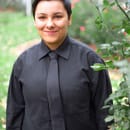Everyone has heard of breast cancer, but how likely is it that people are actually educated on the subject? Like many things, breast cancer comes with misconceptions. Some people think of breast cancer and automatically think of women. For instance, the bracelets people used to sell saying “I love boobies” led people to think primarily of women.
But breast cancer isn’t sex-specific. It can happen to anyone. For those of you who watch “Shameless,” Kev had a scare leading him to spread awareness about breast cancer and teach people how to check for it. Which, good for Kev (I mean, really, he’s kind of stupid all other times), but it shouldn’t take a close call to lead people to education or spread awareness. So, hopefully this article will help people become smarter on the topic.
What is breast cancer?
Well according to the American Cancer Society website, breast cancer starts when cells in the breast begin to grow out of control. These cells usually form a tumor that can often be seen on an x-ray or felt as a lump. The tumor is malignant (cancer) if the cells can grow into (invade) surrounding tissues or spread (metastasize) to distant areas of the body.
The signs and symptoms
Most people know breast cancer means there is a lump or mass on their breast, which often can be felt on its own. However, there can be more signs and symptoms than just the lump. Sometimes it can occur without the feeling of a lump or mass at all. For instance, when there is swelling of part or all of the breast area, it doesn’t always include a distinct lump. Your skin can begin to resemble an orange peel due to skin irritation and dimpling. Of course, if there is breast cancer, you can experience breast or nipple pain—but not all breast or nipple pain automatically means cancer. There are other reasons for this as well, such as when women get their period or just a sharp pain. The skin around the area can also become red, scaly, or even thicken. Nipple retraction is another sign: in other words, your nipple will turn inward. The final possible symptom is abnormal nipple discharge.
Lumps and masses are not always only found in the breast. They can also be found in the lymph nodes under the arm and by the collar bone, even if there isn’t a distinct lump in the breast region. It is important to note though that all of these symptoms could point to another cause, but should be checked out by a healthcare professional.
Breast cancer is usually found later rather than sooner. It is important to get screened and check yourself regularly. The earlier breast cancer (as well as other cancers) is found, the better. It’s important to remain educated when it comes to your health and risk factors. Breast cancer can run in families, but doesn’t automatically mean you are likely to get it. Though there is no set way to prevent breast cancer, being educated never hurt anyone.


